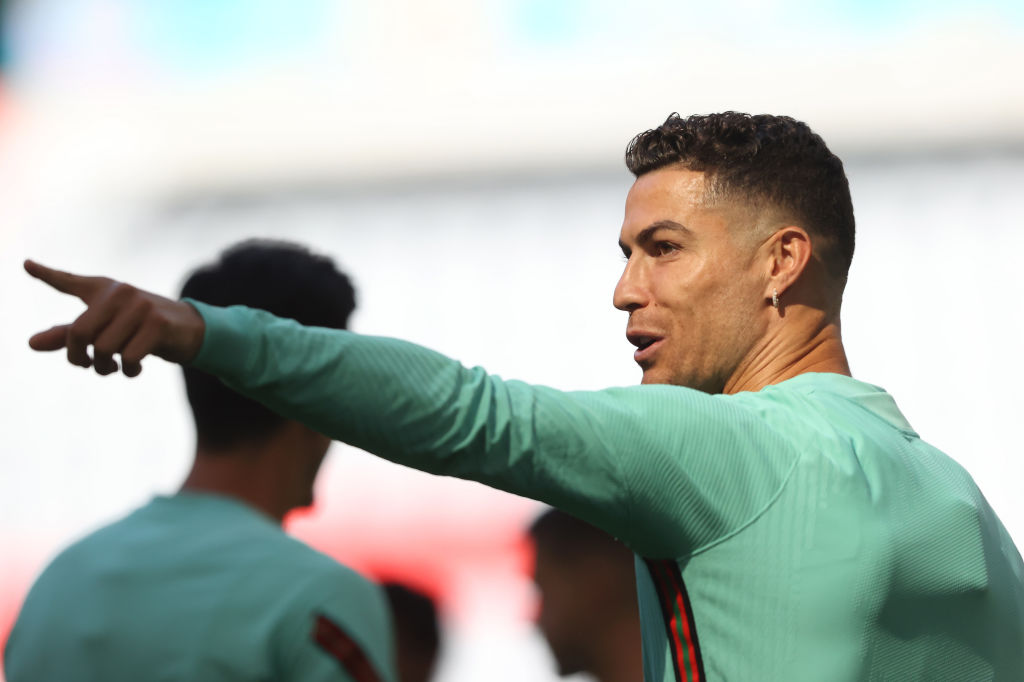Last Tuesday, the great footballer Cristiano Ronaldo, captain of Portugal, removed two bottles of Coca-Cola from a table in front of him, and tens of millions of pounds of sponsorship money went down the plughole.
Ronaldo was at a press conference for the Euro 2021 Championship, in which Coca-Cola had invested heavily – and, as it turned out, pointlessly. It took Ronaldo just seven seconds to make his point: that regular Coca-Cola is stuffed with sugar and if you drink too much of it, or any sugary soft drink, you’d better book an appointment at the diabetes clinic now.
Having hidden the fizzy drinks, Ronaldo held up a bottle of water to indicate what his fans should be drinking instead. As it happens, that brand of water is also owned by Coke, but I don’t think the company will find that consoling. The incident wiped nearly £3 billion off its market value.
The next day, France’s Paul Pogba copied Ronaldo’s bottle trick. He chose to remove a bottle of Heineken beer from his press conference table, presumably because he’s a practising Muslim. (He didn’t say anything, so we can’t be sure.)
When Pogba lifted the beer bottle off the table, he was unwittingly virtue-signalling about virtue-signalling
The only problem was that the bottle didn’t contain any alcohol. The clue’s in the name: Heineken 0.0.
Such are the dangers of virtue-signalling – a term invented in The Spectator by James Bartholemew that right-on celebs loathe because it skewers them so beautifully. Someone should try dropping it into a conversation with the Duke and Duchess of Sussex, the world’s most ostentatious – and inept – practitioners of the art.
But hang on. Ronaldo and Pogba, unlike the embarrassing Gary Lineker, are not finger wagging-bores. Arguably, Ronaldo was actually signalling his support for virtue, or at least one of its 21st-century substitutes: a healthy lifestyle. Sugar-bingeing is a global curse, damaging the arteries and contaminating the blood of hundreds of millions of people. It’s the reason why pharmacies in Brazil, the most football-obsessed country on earth, offer such a huge range of diabetes-related products and treatments.
So, on the whole, good for Ronaldo. Pogba’s action is harder to judge, however. Heineken has thrown money at Euro 2020, producing a ‘limited-edition range of bottles’ in national flags. (The company’s press releases go to town on this limited edition thing, presumably to generate excitement among collectors of beer bottles.) Some are Heineken 5%, others Heineken 0.0.
As an ex-drinker, I’d feel perfectly safe trying the latter, but I won’t because nothing tastes nastier than no-alcohol beer – even if it’s a good imitation of the real thing. Beer without the buzz runs contrary to natural law, if you ask me. But one thing it doesn’t do is challenge the Islamic ban on alcohol.
I’m guessing Paul Pogba didn’t check. Then again, perhaps he knew it was 0.0 but still wanted to make a point about a manufacturer of alcohol sponsoring a football championship. Either way, we can be sure of one thing: he wouldn’t have done it if Ronaldo’s stunt hadn’t made headlines the day before. Likewise Italy’s Manuel Locatelli, who also hid the Coke at his press conference. (Hiding coke is an old footballing tradition, of course, but let’s not go there.)
These were copycat gestures, in other words – something virtue-signalling has in common with religious practice, which is based on copying the gestures of others (for example, in keeping kosher or celebrating the Tridentine Mass). You could describe it as a substitute for religion, except that paradoxically the most fanatical virtue-signallers, worse than any celebs, are the modern clergy.
Both the current Pope and Archbishop of Canterbury are fluent in bien pensant jargon and it makes them sound like hypocrites. Likewise sportsmen, public-sector officials and especially big corporations. When Pogba lifted the beer bottle off the table, he was unwittingly virtue-signalling about virtue-signalling, because Heineken’s 0.0 brand supposedly demonstrates the company’s ‘responsible’ attitude towards alcohol.
Not all these gestures are futile: Ronaldo has 550 million social media followers Mostly, though, we’re witnessing theatrical hypocrisy. It’s theatrical because the person making the ethical point is saying: look at me! And it’s hypocritical because everything is now so connected that you’re forced to be extremely selective in your indignation.
If Pogba had glanced at the screen behind him, he’d have seen a gallery of logos for corporations far more compromised than Heineken. Gazprom, for example – Russia’s state-owned energy giant, which has a history of turning off the taps to neighbouring countries when Putin feels his imperial grip is threatened. And TikTok, the Chinese-owned social media network whose algorithms block videos that draw attention to Beijing’s squalid abuses of human rights.
If you’re going to be consistent in signalling your virtue, the only option is to become a hermit. So people check their mobile phones to see what’s fashionable. But if they arrive too late in the cycle, then they either look like idiots or, more likely, are simply ignored. That’s why, in the end, virtue-signallers will always be at the mercy of short-lived trends. However genuine their outrage, there’s nothing they can do about the law of diminishing returns.






Comments